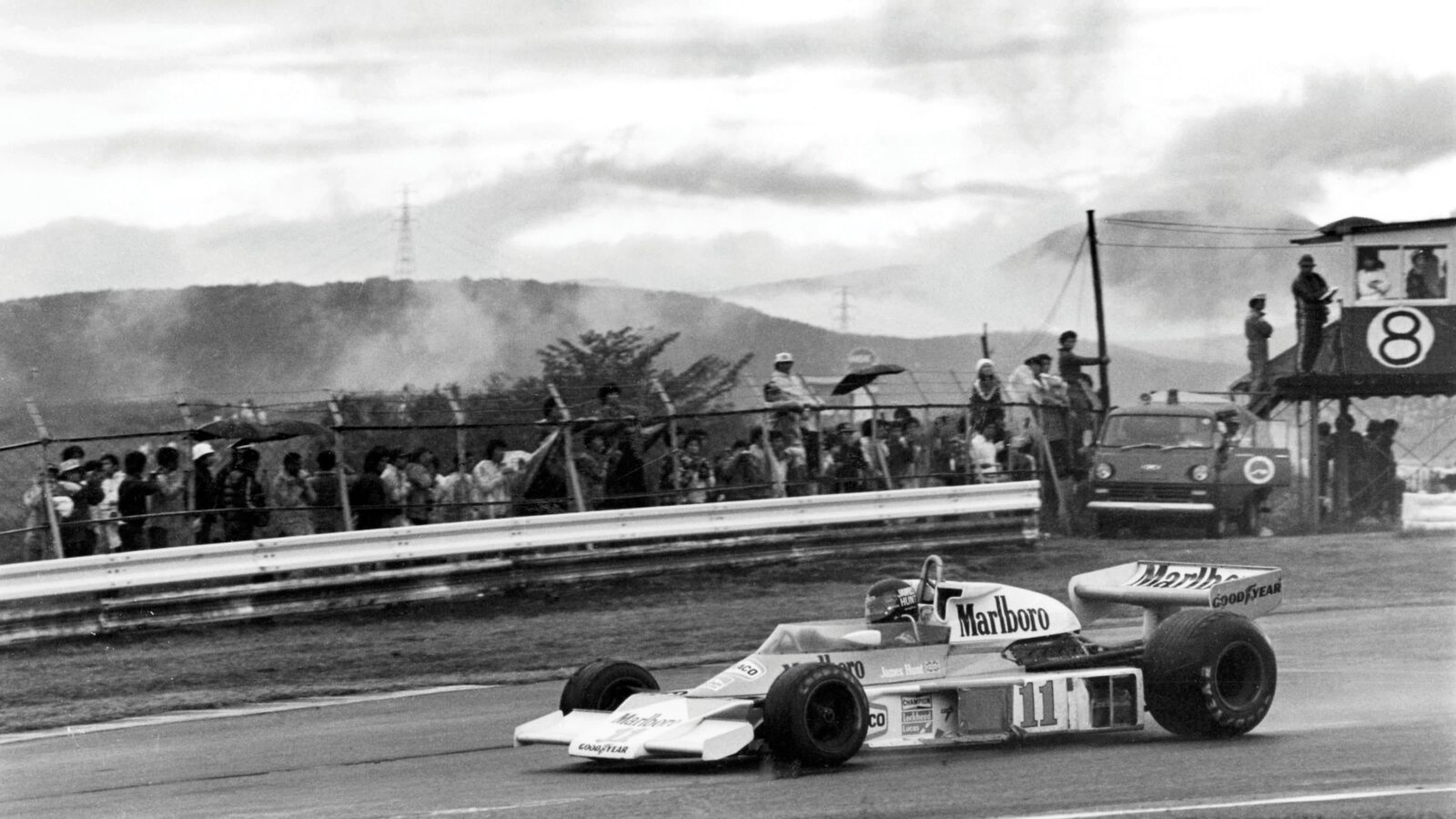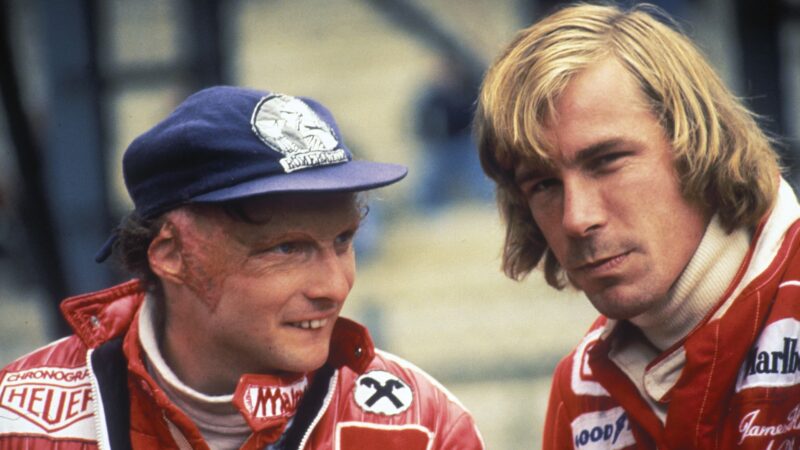1976 F1 season: Hunt vs Lauda in a battle that caught the attention of the world
F1 can trace its current popularity back to its sensational 1976 season

The season went down to the wire, with James Hunt needing either a win or to finish well ahead of title rival Niki Lauda in Japan
Grand Prix Photo
In terms of Formula 1’s mass appeal, this was its genesis. A human story that catapulted the sport from minority interest to a global phenomenon. It had every bit as much impact as Drive to Survive would have many decades later in taking F1 to another level of awareness.
The storyline has yet to be bettered. Flamboyant English ex-public school hippy, with total disregard for society’s mores who just happened to be brilliantly combative and gifted behind the wheel of a racing car. Versus the world champion, very correct, measured, precise as a Teuton representing the legendary Ferrari. Hunt vs Lauda. Anti-establishment vs conformism. McLaren vs Ferrari.
Hunt, long hair, cigarette dangling from his mouth while signing post-race autographs and making outrageous but amusing and eloquent quips. Keen to get on with whatever was planned for that night. Lauda, clipped precise summaries to the inconvenience of questions, keen to get back to work.
Hunt, dropped at the 11th hour by the aristocratic Hesketh team as it had run out of the Lordship‘s money, rescued by the also-11th hour defection of double world champion Emerson Fittipaldi from McLaren to the family Copersucar team. Conservative McLaren was about to receive a rocket up its behind from this mercurial bundle of nerves and audacity. One who had a turn of speed in the old M23 which surprised even himself. As he’d said, although he’d won a race at Hesketh and been competitive for two-and-a-half seasons there, he didn’t know if he was driving a brilliant car averagely or an average car brilliantly.

F1 owes much to Lauda and Hunt, whose fight for the 1976 title captivated the world
Lauda, as precise in the car as out of it, the guy who’d turned Ferrari around with his work rate, his methodology and his ambition. Combined with the creative genius of Mauro Forghieri at his absolute peak, it was difficult to see when anyone was going to beat him over a season. He looked locked-in to success for the long term.
But whaddya know? Hunt was wildly fast in that three-year-old design. Fast enough to be beating Lauda to pole in the first couple of events, even though the Ferrari prevailed in the races. That was an interesting sideline, but what happened at Jarama for round four took the season into an entirely different orbit. Hunt caught, passed and defeated Lauda on track. But Hunt was subsequently disqualified. With new dimensional regulations taking effect from this race, his McLaren was found to be 1.8mm too wide.
Another important backdrop: Ferrari represented the tradition of the sport and was very much on side with the governing body. McLaren was one of the leading antagonists to that power base, in a movement led by Bernie Ecclestone as he sought to convert the combined numerical power of the leading British teams into money. So any matter of ruling – such as a McLaren being thrown out of the results to the benefit of Ferrari – was inevitably seen through this prism. There was political radioactivity to any on-track skirmish. Old guard vs brash commercialism.
As Hunt was disqualified from his British GP victory over Lauda (later reinstated), the story was making the front pages, helped by the defection of Hunt’s wife to the film star Richard Burton. Could things get any more dramatic? Yes. Lauda’s near-fatal fiery accident at the Nürburgring and his being read the last rites. Hunt’s flurry of victories. Lauda’s comeback 33 days after his accident, the fight to the wire for the title, Lauda pulling out a couple of laps into the season finale, spooked by the conditions, Hunt needing to finish fourth, finishing third but believing he was fifth – and screaming at his team boss who, for reasons Hunt couldn’t comprehend, kept holding three fingers up and smiling.

